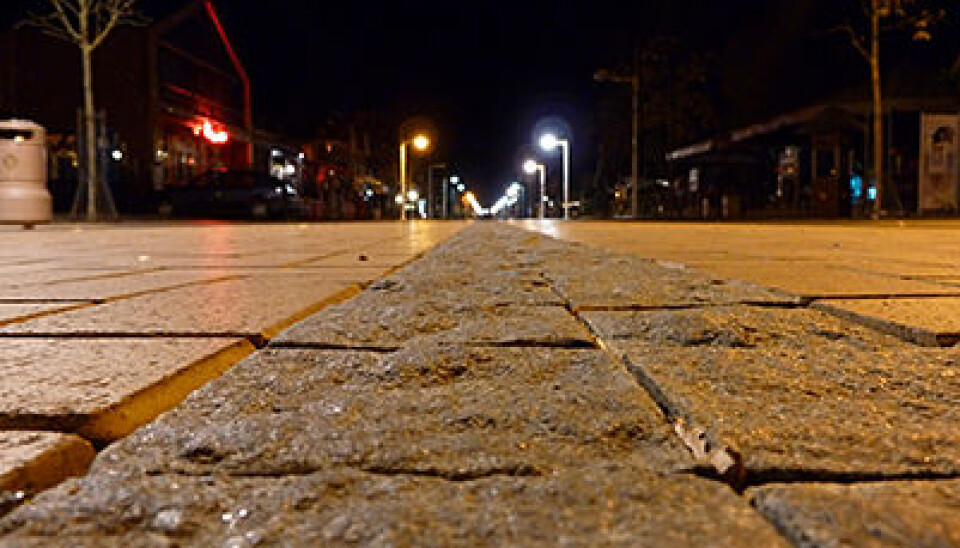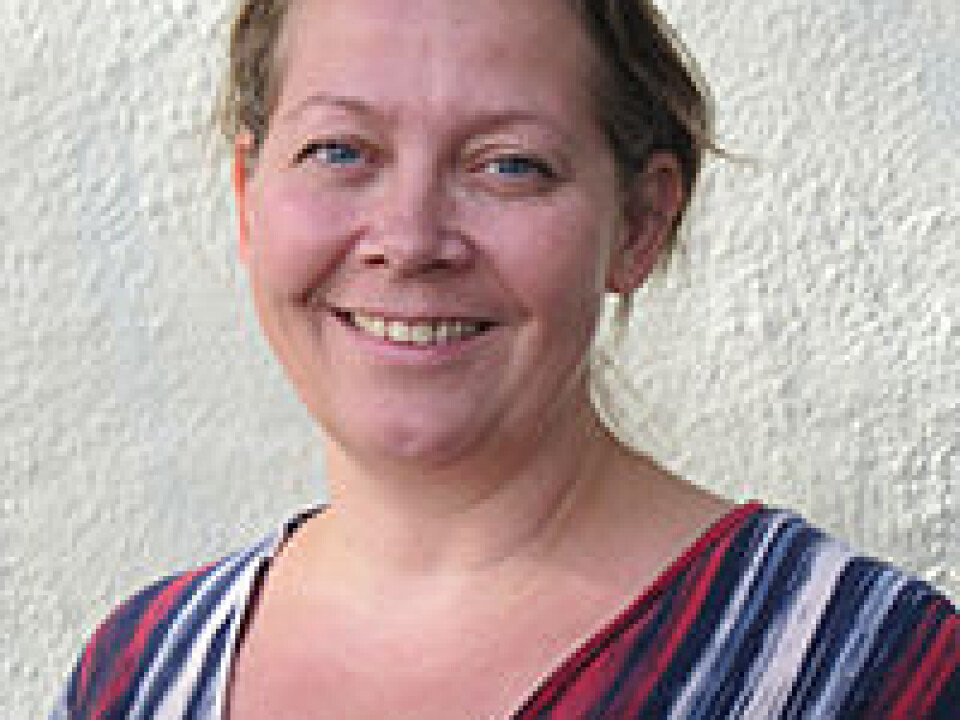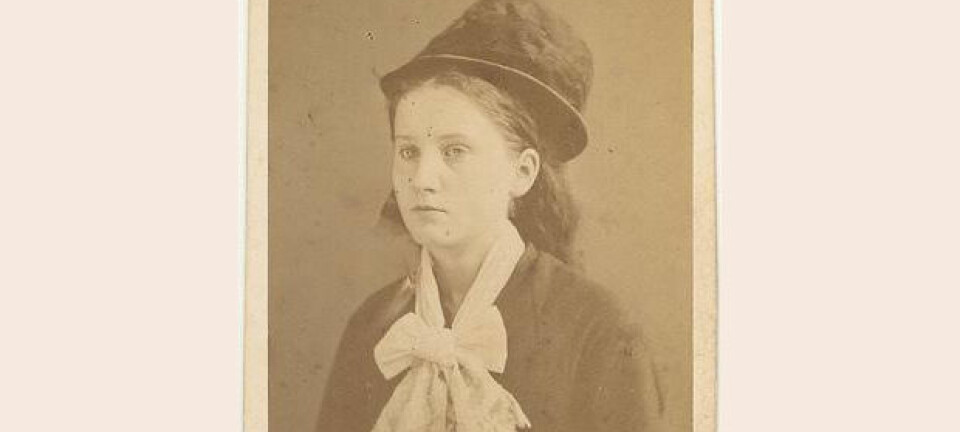An article from University of Oslo

Prostitutes are abused in the hunt for criminals
The way the police treat prostitutes violates their rights, claims researcher.
Denne artikkelen er over ti år gammel og kan inneholde utdatert informasjon.
In recent years, the prostitution market in the Nordic countries has become far more international and is currently practised in a number of different settings.
Many prostitutes sell sexual services and establish contact with their clients over the Internet and using mobile phones as well as directly on the street.
At the same time, the internationalisation of the prostitution market has given rise to concerns as to whether these women are victims of human trafficking and exploitation.
Norway and its neighbouring countries have enacted laws against human trafficking and implemented a number of measures to assist victims. At the same time, the police and the authorities regard foreign prostitutes as a problem they would prefer to intercept at the border.

They are not alone in taking this view; the tourist industry, the hotel business and housing landlords would all like to see a reduction in trans-border prostitution.
Surveillance and control
Today, selling sexual services is legal in the Nordic countries. At the same time, there are some laws that bar foreign women from selling sexual services, or from selling them in specific arenas.
In addition, the police use prostitutes as a means to prosecute human trafficking, pimping and purchase of sexual services.
The women are under surveillance and control by the authorities and the police even though they have not violated any laws. Despite the fact that public policy and discourse often portray women as victims and the weaker party, the practical implications of the police's methods render their lives more difficult.
Stripped of their rights
Foreign women who sell sexual services are especially vulnerable, since the police use them in attempts to detect human trafficking and organized crime.
Whether assumed victims will be provided with help or not will often depend on how far they are willing to go in assisting the police and prosecuting authorities.
As a consequence, prostitutes who cross the border have their freedoms and rights curtailed. They are stopped at airports and denied a visa, they are “outed” and evicted from their homes when landlords are tipped off about possible prostitution, they are denied rooms in hotels and guest houses, deported from the country and so on.
The reasons given by the police tend to be that these women are victims who need to be saved from prostitution and human trafficking, but at the same time this leaves the women in a very difficult situation.
"Police interventions in the prostitution market and in the lives of the foreign women have been greatly intensified in recent years, and the quest for witnesses to human trafficking blocks or restricts these women’s access to Norway."
"Police efforts to stop human trafficking, pimping, illegal immigration and purchase of sexual services have created a situation in which these women are made subject to control in a completely different manner than the rest of the population," says May-Len Skilbrei.
She is associate professor at the Department of Criminology and the Sociology of Law, University of Oslo, where she conducts research on the development of the prostitution market, migration, gender and immigration policy.
Legislation is applied creatively
For many years, since Russian women started to engage in the sale of sexual services in Norway in the late 1990s, prostitution has aroused suspicion of human trafficking and exploitation.
Skilbrei’s research shows how the Immigration Act and the General Civil Penal Code are being linked in various ways to prevent and disclose human trafficking in trans-border prostitution.
The legislative framework is also applied in creative ways to prevent completely legal prostitution and to make use of the women as an instrument in chasing criminals.
Skilbrei argues that the authorities make use of three different practices.
First, the police use raids targeting apartments and hotels occupied by women who are selling sexual services in order to uncover pimping, human trafficking and purchases of these services. These raids represent a strong interference in the lives of women sex workers.
Since these raids also disclose legal violations or missing residence permits on the part of the women themselves, the raids are as likely to lead to the arrest of the women as they are to the apprehension those who exploit them.
The police need witnesses
The second practice consists in how the denial of entry to Norway by prostitutes is being linked to the police’s quest for witnesses to violations of the section on human trafficking in the General Civil Penal Code.
At the border, the police establish whether the arriving women have violated the Immigration Act or the General Civil Penal Code, and use this as an entry point to persuade them to “admit” that they are victims of human trafficking.
The women tend to be regarded as victims in need of help. Instead of providing them with help, however, they are arrested for minor misdemeanours. Not uncommonly, the women will have no passport or residence permit, and the police will then use these misdemeanours as a lever to initiate interviews with them on crimes committed by others.
"In criminal proceedings involving human trafficking, the police rely heavily on court testimonies by victims, and it is essential for the police to ensure their cooperation. At the same time, the intensified surveillance and the initiatives taken with regard to these women will put them in a vulnerable situation," Skilbrei explains.
The researcher claims that this practice, which the police often hold up as an example to be emulated, threatens the due process, security and welfare of victims of human trafficking.
Seeking to prevent future crimes
The third practice consists in how Norwegian authorities apply the Immigration Act to turn women back at the border or reject their visa applications in their home country if they know or assume that they will travel here to sell sexual services.
In this case, the women are not halted in an attempt to disclose human trafficking and help the victims, but to bar them from travelling to Norway. The aim and the grounds are to prevent crimes that other persons can be envisaged to commit, such as purchase of sexual favours.
"This means that the women are penalised for potential future crimes committed by others. Who else in our society is treated like that," Skilbrei asks.
The Nordic model
In Norway, legal acts pertaining to prostitution, human trafficking and immigration are being interlinked in a way that exacerbates the situation of women who sell sexual services, and similar things are occurring in the other Nordic countries.
According to Skilbrei, the so-called “Nordic model” of prostitution policy reflects a political desire to signal that one takes side with the weaker party, since prostitution is often associated with the oppression of women and the use of power by men.
"Prostitution and the participating parties are met with different sets of rules that imply different views on prostitution. The General Civil Penal Code states that those who purchase sexual services should bear the main responsibility, because they are assumed to wield most power in the situation. Hence, the purchaser should be the one to be penalized."
"At the same time, we can see that those who sell sexual services are met with a number of prohibitions pursuant to other legislative acts. In this manner, the authorities send out very ambiguous signals as to who should be held responsible for prostitution," Skilbrei says.
The blame is apportioned to the women anyway
"The authorities claim that prohibiting the sale would be to send the wrong signal, since that would place the blame on the women, and there is no political tradition for this in Norway or the other Nordic countries. In practice, however, it is done anyway, to combat human trafficking, pimping and purchase of sexual favours."
"All over Europe, we can see that the efforts to combat prostitution and human trafficking are largely at the expense of the women involved. Legislation is not applied to men, even though there are a considerable number of men who also sell sexual services. They are not defined as part of the problem."
"The Act relating to purchase of sexual services is very inequitably enforced, and since male sellers are not made subject to the same interventions, there must be a gender perspective here somewhere," Skilbrei concludes.
---------------------
Read the Norwegian version of this article at forskning.no


































